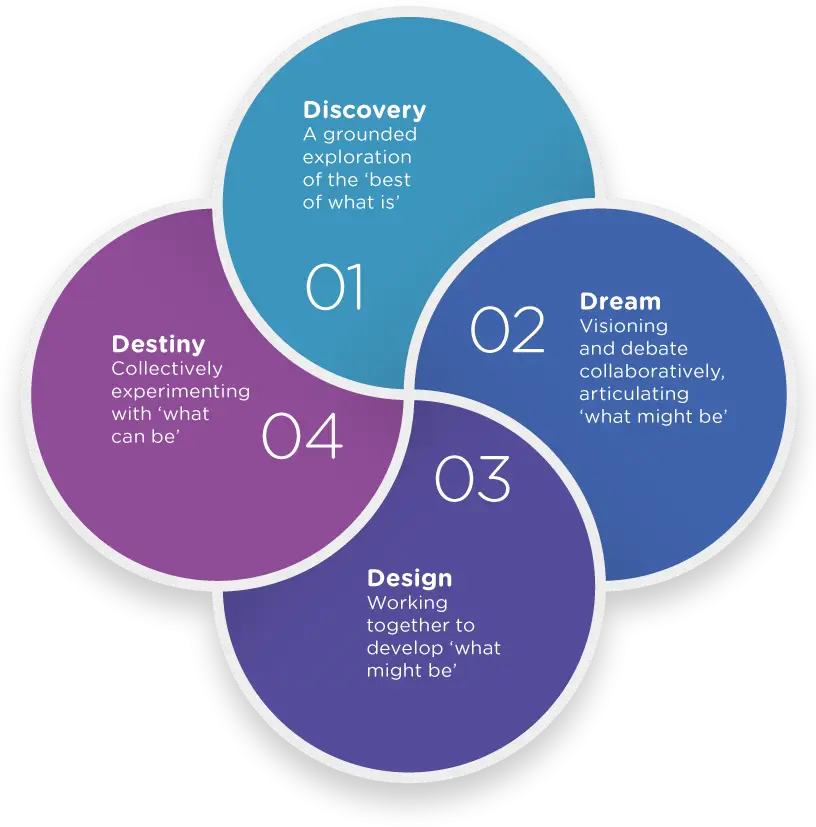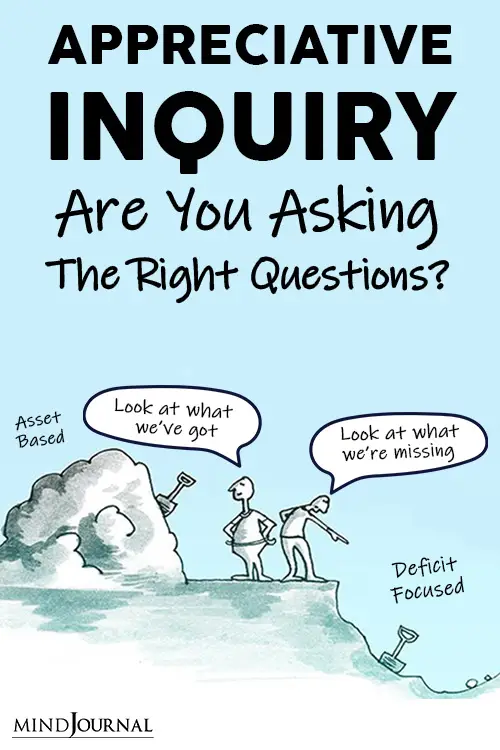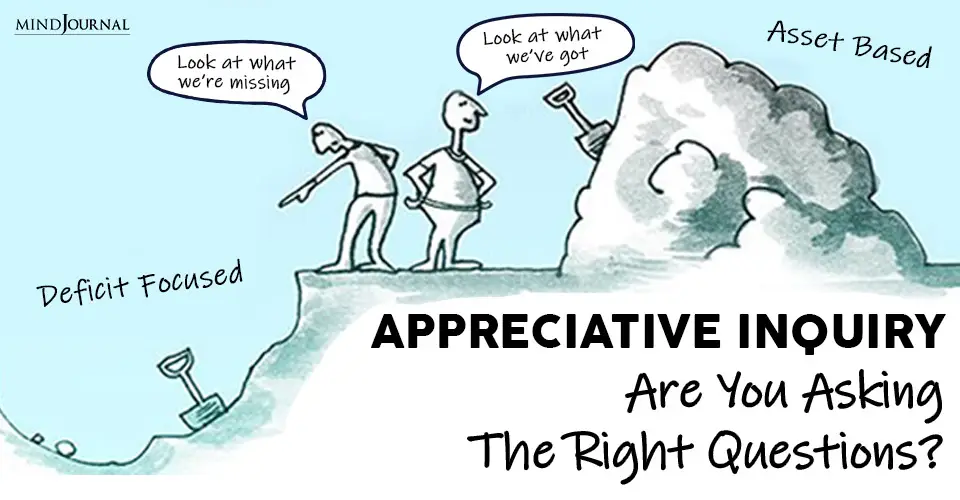What gets you out of bed each morning? And what lights you up and makes you feel most alive? How often do you really ask yourself these questions? Or take the time to ask them of others? If your answer is “not often” you’re in good company, but what might start happening if you do appreciative inquiry?
“When we ask these types of questions something magical happens,” explained Jon Berghoff, from the Flourishing Leadership Institute, when I interviewed him recently. “You discover you have the capability and potential to positively shape your future in ways you never thought possible.”
Jon has been asking Appreciative Inquiry questions such as these to help others discover what causes the human systems they are part of – such as a team, company or community – to come alive faster, to be at their best, to play to their strengths, to drive innovation from all levels within and from outside, and to naturally cultivate a deeper sense of purpose.
But why do these questions make this kind of magical change possible?
When it comes to creating changes, it can be easy to focus on what’s wrong, what’s missing, what’s not working and what needs fixing. And while it might be a helpful way to understand how you got to where you are, it’s not necessarily a great way to create the energy, buy-in and momentum that you may need to get to where you want to go now.
However, when we ask Appreciative Inquiry questions they don’t ignore the problems but do use a different lens to work with them. So rather than getting stuck on what’s broken, they reframe your questions to focus on what you value, want to grow and what you’re willing to take responsibility for making happen.
Related: Who Are You? based on Your Answer to The World’s Greatest Philosophical Questions?
Appreciative Inquiry uses a simple 4D cycle to guide these questions
– discover, dream design, deploy – and create changes that last. For example by:
Discovering stories of what happens when you feel most alive, engaged and proud of your work helps create the confidence and momentum that unleashes higher levels of performance. You might ask: “When you feel engaged, energized and enjoying life, what’s happening? “
Dreaming vivid positive images of your future can pull you forward with optimism, hope, and motivate you to take positive action. You might ask: “If you could do what you’ve just described more consistently, what might be possible as you look ahead?
Design invites you to create multiple pathways to turn your dreams into reality by identifying and prioritizing ways to move from where you are right now, to where you want to be. You might ask: “How can you move from where you are right now, to where you want to be? “
Deploy invites people to volunteer to take responsibility for the changes they feel passionate enough to put into action. You might ask: “If there was one action you could take, where would you be willing to start?”

You can ask these questions of yourself, a colleague, an entire team or even a whole organization or community. For example, Appreciative Inquiry is what’s helping the City of Cleveland become a ‘thriving green city on a blue lake’. Their three day Appreciative Inquiry Summit brought together hundreds of people from all walks of life – local neighbourhoods, business leaders, nonprofits, government, universities, religious leaders, and schools – to discover how they could leverage off their assets and overcome challenges, to deliver economic, social and environmental wellbeing for all their citizens.
Related: Is It Solitude or Loneliness?: 4 Questions to Help You Tell
As a result, they’re transforming their city through such things as energy efficiency measures, creating urban farms, and promoting healthier ways to get around.
“If you’re going to create change across an entire system, it’s important to bring in as many different voices as possible that are impacted by the system to be part of discussions,” advised Jon. “You’ll find that the level of commitment and desire to make the future happen is so much higher, faster, and more efficient than just sending out the vision and hoping people get it.”
How could Appreciative Inquiry approaches be used to transform your team or organization?
Jon offered three suggestions on how you can bring the principles of Appreciative Inquiry into your workplace by asking more of the following questions:
Questions About Purpose –
more than anything else studies suggest people are longing for a sense of meaning in their work. We want to know that what we do matters, and can’t simply assume that the company vision is enough to make what people do each day meaningful. The most rewarding tasks provide us with both individual and collective purpose. Take a few moments to pause at the start of your next planning day or meeting and ask people: “Why is what we’re doing today important to us?”
Related: 3 Key Questions To Ask Yourself To Help Make Any Decision
Questions About Strengths –
re-frame your questions to look for what’s working well, rather than getting stuck only on what’s not working. For example, if you want to improve your team’s performance starts by asking: “When have we performed at our best in the past? What made this possible? How can we build upon these strengths?”
And if you’ve never been any good at it, look outside of your organization for anyone else who’s good at it. Ask: “What does that look like for others when it’s working? What can you learn from these experiences? How could your own strengths support these practices?” Commit to finding and spreading great practice stories.
Related:10 Questions To Know If You Should Support Your Leader Or Manager
Questions That Connect You To Images Of The Future –
positive images have been found to pull us forward into positive actions because into new possibilities that fuel us with hope and put us on the road to finding solutions, helping us to realize we have the power to make things happen.
Try asking: “What do you want your future to look like? What would it look like if you were exceptional in the area you want to improve? If everything went as well as it possibly could, what are your deepest hopes?” Consider what actions you could take to move you and your team from where you are now to where you want to be, based on what you know of your organization.
What appreciative questions can you start asking to shape your own and the wellbeing of others around you?
Written by: Michelle McQuaid
Originally appeared on Michellemcquaid.com
Republished with permission.









Leave a Reply
You must be logged in to post a comment.